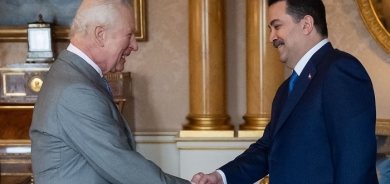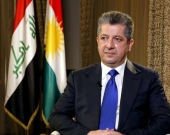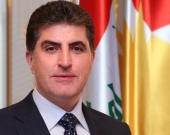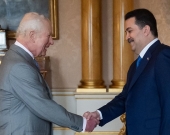Iran's Ahmadinejad may face charges over election appearance with aide

Iranian President Mahmoud Ahmadinejad may face charges for accompanying an ally to register for the June presidential vote, the electoral watchdog said, in a possible move by rival conservative hardliners keen to pre-empt any challenge to Iran's clerical supreme leader.
After mass protests that followed the 2009 election, Supreme Leader Ayatollah Ali Khamenei may have looked to next month's vote to install a loyal conservative president but the surprise candidacies of two major independents could rewrite that script.
Both Esfandiar Rahim Mashaie, former chief of staff to the populist Ahmadinejad, and Akbar Hashemi Rafsanjani, a former president, relative moderate and Iran's most prominent political grandee, are both seen as threats to Khamenei's authority.
The Guardian Council, a group of Islamic clerics and jurists who vet all election candidates, has assessed that Ahmadinejad violated the law in accompanying Mashaie when his ex-aide registered his candidacy on Saturday, Iranian media reported.
Iran's electoral statute forbids the use of state resources on behalf of or against any candidate, and bans individuals from supporting candidates in an official capacity.
Abbas Ali Kadkhodai, a spokesman for the Council, said it had unanimously agreed that "the ... actions of the president in introducing an individual as an election candidate constituted a violation and were criminal," according to Khabaronline, an Iranian news site.
"We reported the facts to the judiciary," Kadkhodai said.
Ahmadinejad's office denied the accusation, arguing that since the Guardian Council had not yet announced the list of final candidates, the campaign season had not formally begun.
SIGNAL THAT MASHAIE WILL BE BARRED?
The Council's complaint against Ahmadinejad, who by law cannot run for a third term, could be a sign it will reject the candidacy of his nationalist protégé Mashaie when it publishes the final list of approved candidates later this month.
Indeed, the semi-official news agency Mehr quoted Kadkhodai as saying election violations could affect the vetting process, a hint that Mashaie could be disqualified.
But barring Mashaie could dramatically deepen the conflict between Ahmadinejad and the conservative establishment fervently loyal to Khamenei and the principles of the Islamic Republic.
And that would still leave Rafsanjani, who by himself could transform what had previously been shaping up as an electoral competition among conservatives close to Khamenei. Rafsanjani's relationship with Khamenei fell apart over his support for the losing reformist side in the 2009 election.
Ahmadinejad was once the favored presidential candidate of Khamenei's faithful who backed his re-election four years ago. But, after repeated challenges to Khamenei's authority, he has fallen from grace within the fractured conservative power structure of the Islamic Republic.
Khamenei personally intervened to prevent Mashaie becoming vice-president in 2009, driving home his disapproval of a man conservatives accuse of leading a "deviant" nationalist current bent on eroding the political predominance of Muslim clerics.
In a letter to the judiciary, some 150 parliamentarians said Ahmadinejad had violated the law, urging it to "investigate" the issue, according to Mehr news agency.
Photographs in the Iranian media showed Ahmadinejad and Mashaie gripping hands and making peace signs during the registration process at the Interior Ministry. Mashaie said the president had accompanied him on "a day off" from work.
(Reporting by Yeganeh Torbati and Zahra Hosseinian; Editing by Mark Heinrich)












